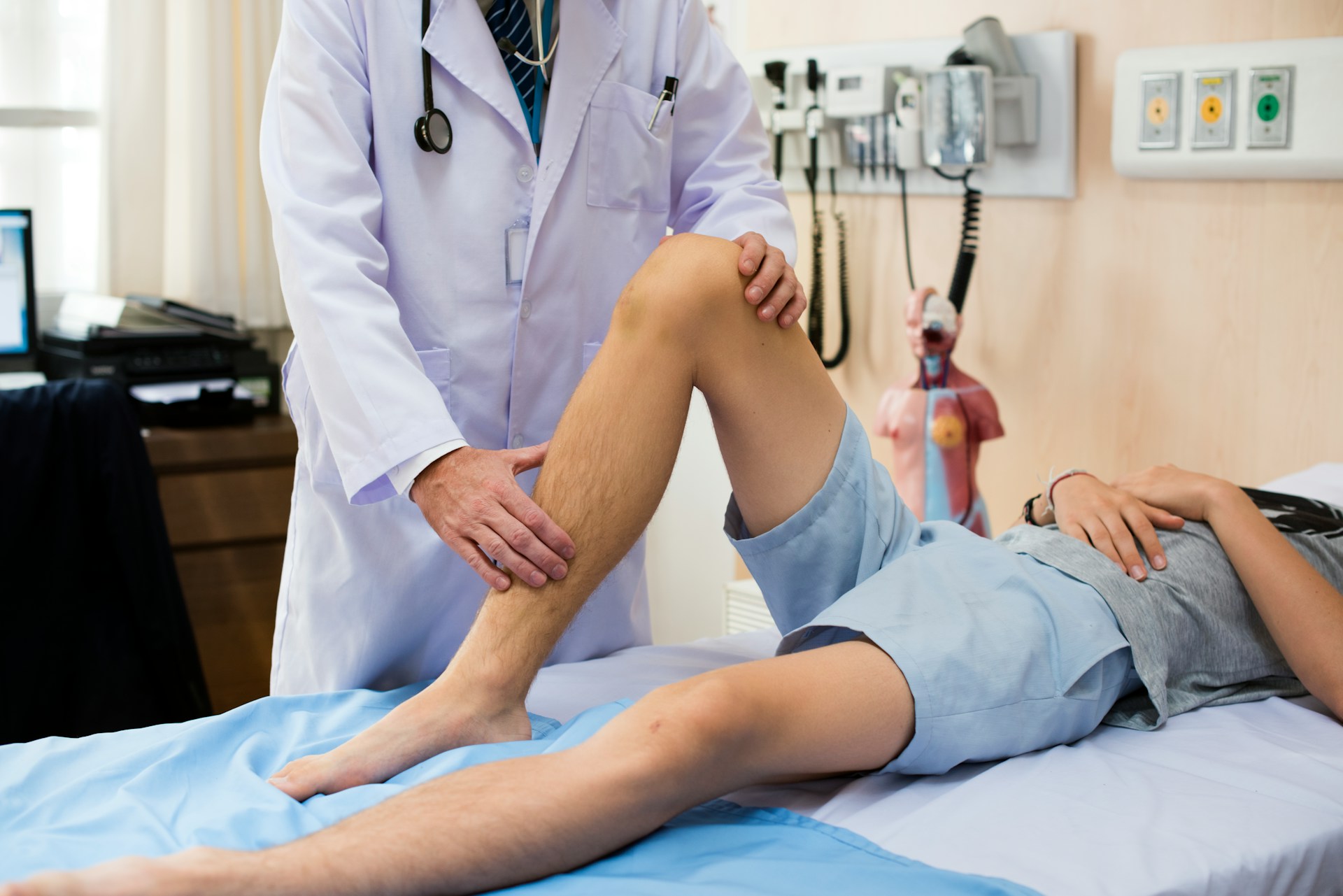Knee popping and cracking are more common than you might think, often occurring when you’re simply moving about your day. Many people experience these sounds, and though it might feel odd or even humorous at first, sometimes it can be a sign that you should pay more attention. The knees are essential for mobility and any change in how they sound or feel might lead you to wonder if there’s something more serious going on.
Understanding what’s normal and what’s not can help ease your concerns. Knowing when to seek advice could save you from overlooking a possible problem. While knee sounds are usually harmless, they can sometimes signal an issue that might need attention. Knowing more about these noises and what they might indicate could make a big difference in spotting concerns early, ensuring you get back to feeling your best quickly.
Common Causes of Knee Popping and Cracking
Why do knees pop and crack? It’s a question that puzzles many. Here’s a closer look at some everyday causes:
– Gas Bubbles: Ever notice your joints crack when you stand up? It might be gas bubbles bursting. This is totally normal and happens in the fluid of your joints as they move, similar to cracking knuckles.
– Ligament Movement: Your ligaments stretch and move as you change positions. Sometimes, they might catch a bit, and you’ll hear a sound when they snap back into place.
– Tendon Snapping: Occasionally, tendons might make a snapping noise. When they move over the bones around the knee, it can create this common sound.
Some sounds might result from minor injuries or overuse. Have you ever tried a new workout or increased your daily steps suddenly? This can sometimes lead to mild swelling, which might add to those knee noises. Usually, rest can help this settle down.
However, if the popping and cracking suddenly start occurring alongside pain or swelling, it can be more than just the signs of everyday activity. Injuries such as sprains or strains can lead to prolonged noise if not addressed. Yet, often these sounds need no treatment, and recognizing harmless scenarios can prevent unnecessary worry, allowing you to focus on enjoying your activities without fear.
When to Be Concerned About Knee Popping and Cracking
While knee popping is typically harmless, there are certain instances where a little more caution is warranted. Paying attention to additional symptoms is key. Here are some signs that might suggest you should speak with a healthcare professional:
– Persistent pain, especially if it comes with swelling.
– Instability or a feeling that the knee might “give out.”
– Sounds that occur after a direct injury or accident.
The presence of these symptoms might mean there’s something more significant happening within the knee joint. Conditions such as arthritis could be causing the discomfort, and prompt attention can make a difference in managing these issues effectively. If any of these red flags seem familiar, it’s wise to have an assessment to rule out potential injuries or underlying conditions.
How a Knee Pain Clinic Can Help
Getting help from a knee pain clinic can be a game changer for those noises and discomforts in your knees. Specialized clinics have the tools to dig deeper into what’s going on inside your knee. Here’s how they approach it:
1. Diagnostic Methods: Clinics may use X-rays or MRIs to get a clear picture of the knee structure, helps identify any physical changes or issues.
2. Treatment Options: After a thorough diagnosis, a range of treatments could be on the menu, from physical therapy sessions and medications to more advanced minimally invasive procedures that target specific problems.
3. Personalized Care Plans: No two knees are the same, and having a tailored approach ensures that the care provided meets your specific needs. Set plans keep you on track to manage knee health effectively.
A clinic offers not only expertise but also peace of mind, knowing that you’re tackling the issue head-on with a focused strategy.
Preventing Knee Problems
Taking steps to prevent knee issues can keep sounds and discomfort at bay. Simple routines can strengthen your knees and reduce strain:
– Exercises and Stretches: Including exercises that target your thighs and around your knees can offer support. Regular stretching helps maintain flexibility.
– Lifestyle Changes: Maintaining a healthy weight minimizes pressure on knees. Wearing appropriate shoes adds to support throughout daily activities.
By incorporating these habits, you’ll give your knees a chance to stay in good shape, reducing the risk of future problems.
Taking the Next Step Towards Knee Health
Being proactive with knee health ensures you stay active and comfortable in the long run. Any persistent noises accompanied by other symptoms should be examined to catch problems early. Acting quickly on these signs allows for better outcomes and preserves the function of your knees over time.
So, while knee popping and cracking alone shouldn’t worry you, being aware of associated symptoms and knowing when to reach out for help is invaluable. Taking these steps not only promotes long-term knee health but also ensures you’re ready to enjoy all the activities you love with confidence and ease.
If knee popping is causing concern and disrupting your daily activities, consider seeking expert evaluation at The Burress Medical Center. Our dedicated knee pain clinic offers personalized care plans tailored to your unique needs. Let our experienced professionals guide you towards a future of improved knee health and lasting comfort. Don’t let knee noises hold you back—take the first step to resolve those unsettling sounds today.







